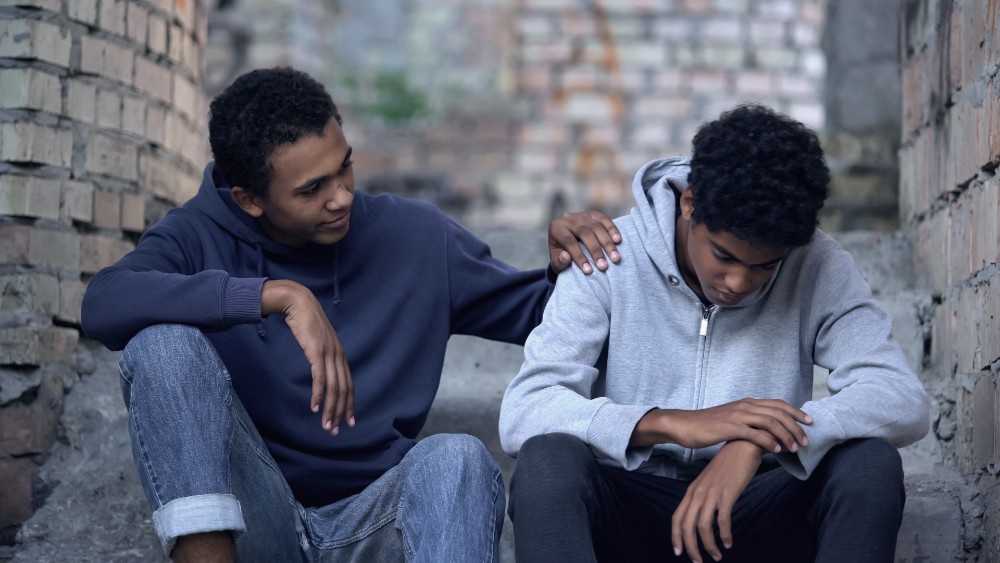
Throughout the recovery process, sometimes we can find ourselves still feeling plagued by the same persistent issues we thought we had already resolved. We feel lingering emotions we thought we had already come to terms with. We feel evidence of our unhealed wounds. The traumatic experiences we go through can continue to impact us, even as we work steadily on our recovery programs.
It can often feel as though the pain of our pasts is continuing to haunt us, relentlessly. We might be hit with painful memories of the things we’ve been through. We might have recurring nightmares that are reminiscent of our trauma. We might obsess about events from the past and have recurring thoughts about them that we feel we can’t control.
When these things happen in recovery, we can be confused as to why we still have to grapple with our trauma. We may feel as though we don’t know what exactly traumatized us in the first place, or what the sources of our trauma actually are. It can help us tremendously in our recovery to identify these sources of trauma so that we can work to heal from them.
Recurring Thoughts
One way we can identify the sources of our trauma is to explore in more depth the recurring, obsessive thoughts we’re having. Sometimes our recurring thoughts are a distraction from deeper issues, so we want to closely examine what issues we are subconsciously distracting ourselves from. Sometimes our recurring thoughts point directly to our trauma, and the content of them is closely related to the traumatic experiences we’ve been through. What are your recurring thoughts? What do you find yourself obsessing about? How do those thoughts make you feel? You may be subconsciously avoiding something specific or obsessing about a particular issue related to your trauma. Either way, our recurring thoughts and our traumatic experiences can be closely linked.
Memories
Do you find yourself recalling certain memories from the past? Can you remember them in more detail, or does your memory feel blocked? Have you been suppressing painful memories and hoping they will dissipate over time? Have you been trying to avoid thinking about them? When we continually replay specific memories in our minds, they are often related to the traumatic experiences we have yet to heal from. We have a hard time confronting our memories because they bring back painful experiences we may want to avoid facing. Yet looking at our memories more closely – and moving through any fear they bring up for us – can help us identify the sources of our trauma and understand them in more depth.
Emotional Triggers
One of the things we try to avoid the most in recovery is our emotional triggers – the things we’re most sensitive to and most troubled by. We tend to think that avoidance is the best coping mechanism for our triggers. But the more we avoid them, the more we increase our emotional resistance – making our painful emotions even stronger and more overpowering. We want to courageously face our triggers head-on, and the more we do, the more desensitized to them we will become. We will be able to actually feel our emotions and remember our traumatic experiences without running away and hiding from them whenever we feel triggered. What do you feel most triggered by? What emotional triggers have you been trying to avoid? This process of facing our triggers helps us to better identify what exactly we were traumatized by and how we were impacted, rather than avoiding thinking about our triggers and our trauma altogether.
Behavioral Patterns
When we look at our behavioral patterns more closely, we can learn a lot about ourselves and our pasts. Are there certain things you’ve been avoiding doing, because they bring back difficult memories? Are there emotional coping mechanisms you’ve developed, like projecting your pain onto other people, because your trauma is too tough to handle directly? Have you been relying on other people excessively or developed codependent relationship dynamics because your trauma caused you to lose your independence? Our behaviors tell us a lot about our thoughts and feelings, and they can help us gain more understanding about the past traumatic experiences we haven’t confronted yet.
Family Support
When we haven’t been able to identify the sources of our trauma, one of the best things we can do for ourselves is to enlist the support of our family members – the people who know us best – to help us recall and better understand the things we’ve been through. Sometimes our family members remember more than we do, especially family members who are older than we are, who witnessed or experienced the trauma alongside us, or who we confided in. Sometimes when we’ve buried our pain deep inside of us, our family members can help us unearth it and make peace with it. We can lean on them for support during this very emotionally demanding self-exploration process. We can also work towards healing together, especially since families are often impacted by the same traumatic experiences and have many of the same issues to resolve.
The Guest House is a welcoming and supportive recovery home where you will be met with open arms, wherever you are on your journey, without judgment or expectation. Call 855-483-7800 or visit www.theguesthouseocala.com today to begin your healing.